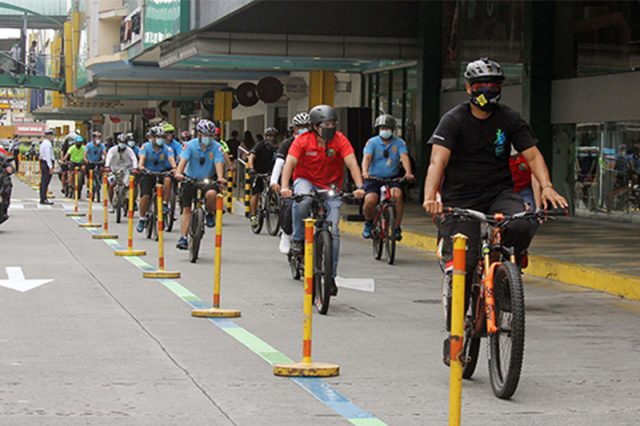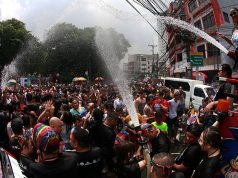
In response to San Juan City’s decision to remove bollards from bicycle lanes, the Institute for Climate and Sustainable Cities (ICSC) urged all Philippine cities on Tuesday to provide safer and inclusive streets for their residents.
“The removal of safe passages for cyclists not only hampers their ability to move around, but also places them in greater danger,” Aldrin Pelicano, ICSC inclusive urban mobility advisor and MNL Moves founder, said in a statement.
Bicycle lanes in San Juan City have lost their bollards after Mayor Francis Zamora ordered the removal on August 18. The move, which took place after an assessment by the Metropolitan Manila Development Authority’s (MMDA), was aimed at addressing traffic congestion.
“Following the thorough evaluation of [the] MMDA, it has been advised that the removal of bollards is necessary to alleviate traffic congestion and restore the roads to their optimal capacity,” Zamora said in a public advisory.
In a letter addressed to Zamora, the MMDA found that bollards along Ortigas Avenue are causing congestion. The agency asserted that these physical markers “pose maintenance challenges, block driveways and hinder emergency response efforts.”
For the ICSC, the notion that bollards are responsible for traffic congestion is unbelievable, asserting that congestion arises from the public’s overdependence on motorized vehicles.
With the growing number of bicycle users as reported by the MMDA in June 2023, the organization said it is high time for cities to consider prioritizing people over cars to improve mobility.
Many cyclists in the city also expressed disappointment, saying the directive is only a step backward from the progress made to protect cyclists and promote sustainable alternative transportation in the country.
3 years ago, San Juan was one of the first cities brave enough to put up pop-up bike lanes in Metro Manila amidst the pandemic. Other cities looked at SJ for inspiration – they were so ahead!
To see them go backwards is heartbreaking. I hope @sanjuancityncr does better. https://t.co/bCAWAopD9E pic.twitter.com/wmgN69mD1I
— Keisha Mayuga 🏳️🌈 (@Keisha_Geisha) August 17, 2023
Urban mobility and public transportation group Move As One Coalition coordinator Kenneth Abante said in a post on X (formerly Twitter) that the safety of all road users are at risk when bollards are removed.
Abante calls on Zamora to rethink his decision, banking on the mayor’s history of listening to science.
It is even more disheartening that a Mobility Award-winning city like San Juan is “backtracking on gains in mobility and road safety,” he added.
San Juan City was branded as one of the most bike-friendly cities in the 2020 Mobility Awards, receiving the gold award.
The ICSC also said that San Juan City’s move contradicts the commitment made as a Mobility Awardee. Pelicano added that past city winners are supposed to “prioritize the mobility needs of the majority and promote sustainable urban living.”
The organization urged the city to implement “stronger proactive measures” such as slower speed limits, safe and accessible spaces for non-motorists and wider sidewalks for pedestrians.
“Unless these strategic measures are in place, abrupt removals of segregated bollards and other safety facilities endangers non-motorists on our roads,” Pelicano said.
For cyclists, bollards are not merely physical delineators on the road. They serve as a means of protection from vehicular accidents and mitigating mobility constraints in cities.









